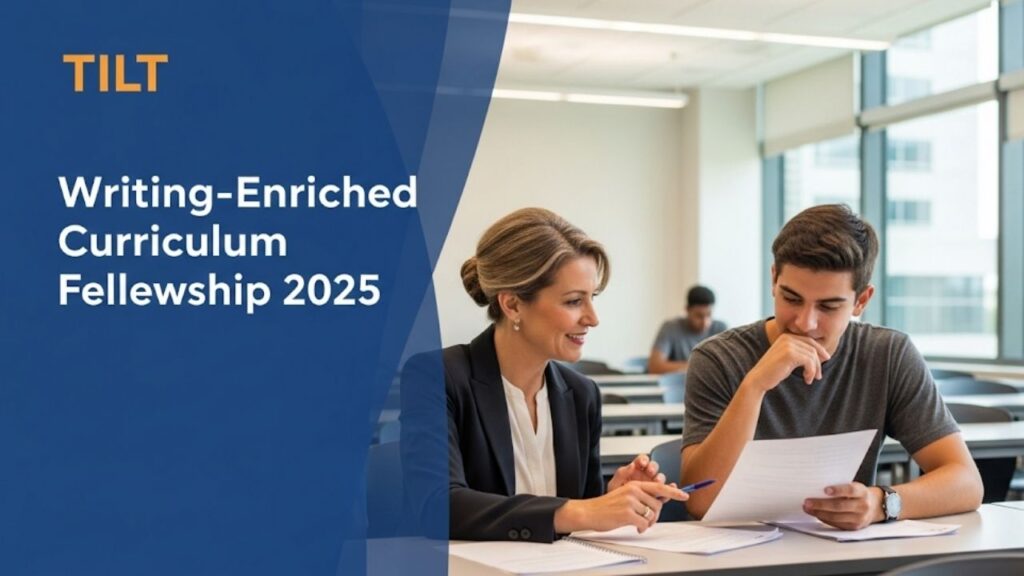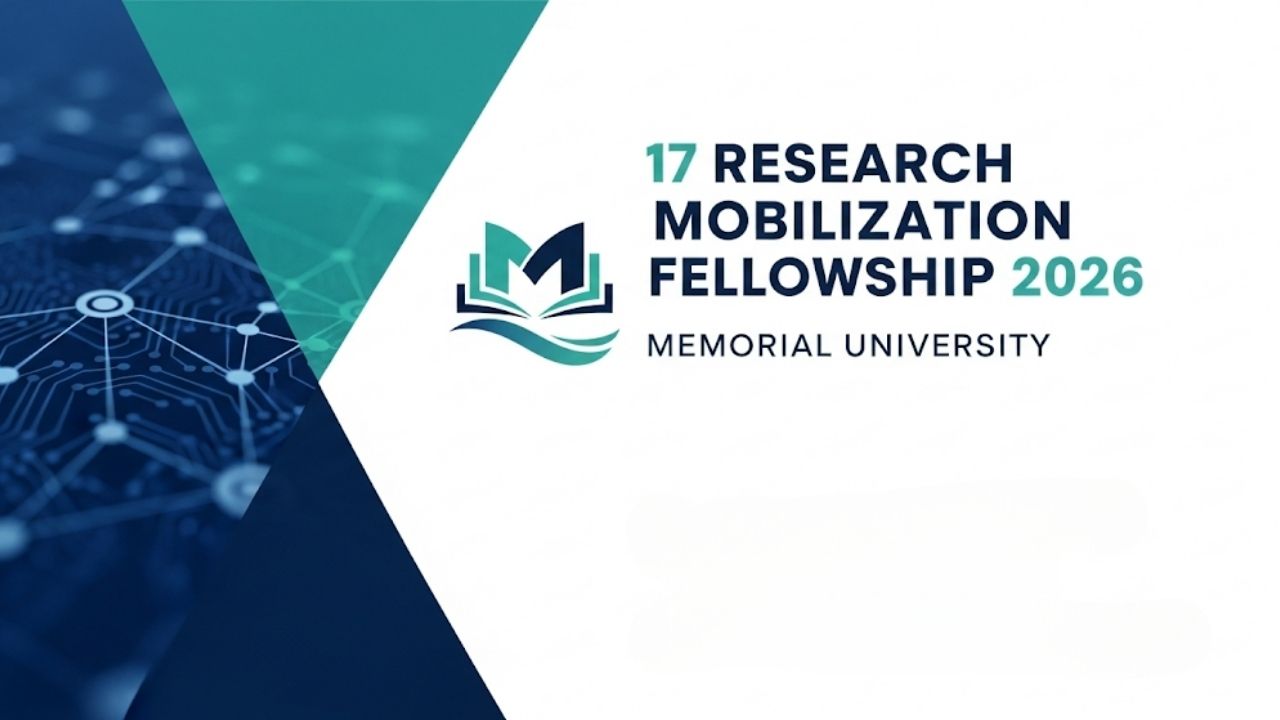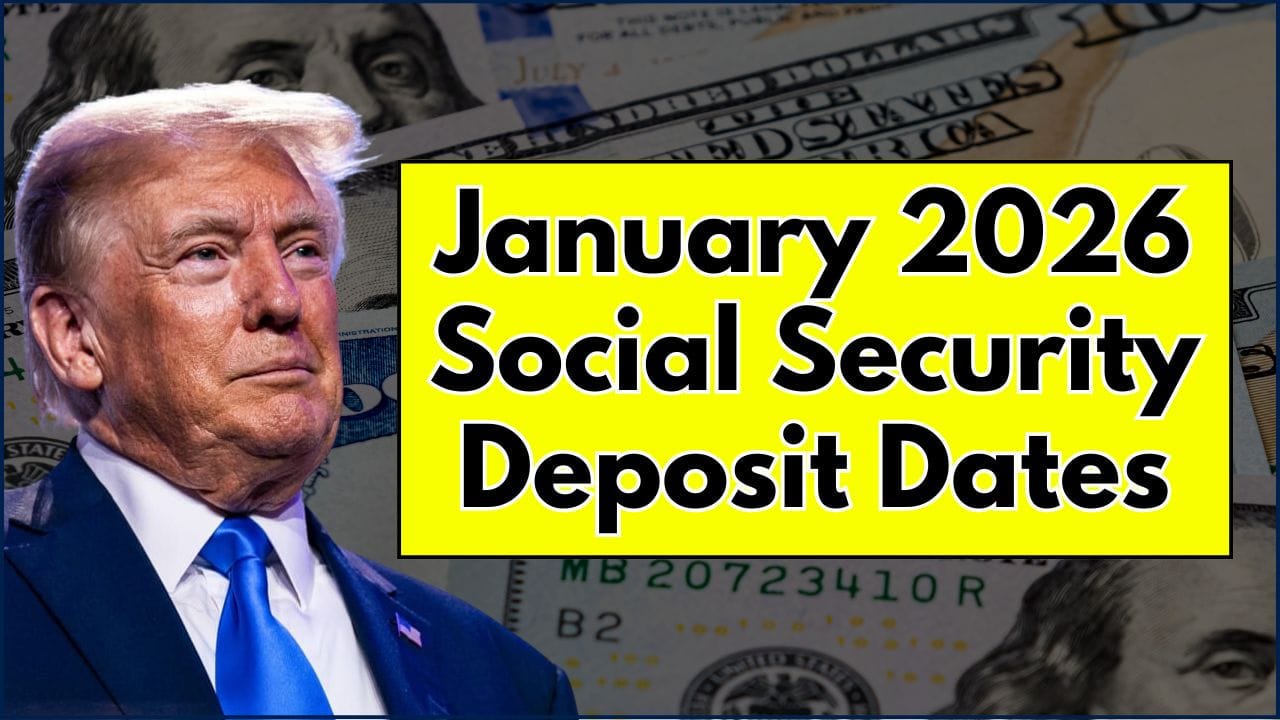Are you a passionate educator at Colorado State University looking to deepen student learning and engagement? The TILT Writing-Enriched Curriculum Fellowship 2025 offers a transformative opportunity to innovate your teaching by placing writing at the very heart of your course design. This fellowship is more than just a professional development program; it’s a fully-supported journey to becoming a more effective, inspiring, and impactful instructor. This guide provides a comprehensive roadmap to understanding the fellowship, crafting a successful application, and joining a community dedicated to academic excellence through writing.

A Catalyst for Educational Innovation
In an academic landscape where critical thinking and clear communication are paramount, The Institute for Learning and Teaching (TILT) at CSU has developed the Writing-Enriched Curriculum (WEC) Faculty Fellowship to empower educators. The program champions the idea that writing is not merely a method for assessment but a powerful tool for learning. By integrating meaningful writing assignments and strategies into your courses, you can help students grasp complex concepts more thoroughly, retain knowledge longer, and develop skills that will serve them long after they leave your classroom.
TILT Writing-Enriched Curriculum Fellowship 2025
| Aspect | Detail |
| Stipend | $1,500 for the selected course instructor. |
| Application Deadline | August 1, 2025, at 11:59 p.m. |
| Eligibility | Full-time CSU faculty for the 2025–2026 academic year. |
The TILT Writing-Enriched Curriculum Fellowship 2025 is a unique opportunity to receive the resources, mentorship, and support needed to elevate your teaching to the next level. By thoughtfully integrating writing into your courses, you can unlock new levels of understanding and critical thinking in your students. I encourage every eligible faculty member with a passion for pedagogy to explore this fellowship. Start preparing your proposal now, and take the first step toward making a lasting impact on your students and the broader CSU community.
What is a Writing-Enriched Curriculum?
Before diving into the application process, it’s essential to understand the philosophy behind the fellowship. A writing-enriched curriculum isn’t about adding more grading to your workload. Instead, it’s a pedagogical approach that uses writing to help students think like professionals in your discipline. It involves designing assignments that foster critical thinking, analytical skills, and the ability to communicate complex ideas effectively.
This can take many forms, from a series of low-stakes exploratory writing prompts to a scaffolded, major research paper. The goal is to make writing an integral part of the learning process, helping students to not only demonstrate their knowledge but also to discover and refine it.

Unlocking the Benefits: What the TILT WEC Fellowship Offers
The TILT WEC Fellowship is designed to provide comprehensive support to faculty members. In my experience advising educators, having a structured support system is often the key to successfully implementing new teaching strategies. This fellowship excels in providing just that.
Here’s what successful applicants will receive:
- Financial Support: A $1,500 stipend is provided to compensate for the time and effort you invest in your curriculum redesign. This is disbursed upon the submission of a final report in May 2026.
- Expert Mentorship: Fellows receive 20 hours of one-on-one mentorship with a WEC Lead expert. This personalized guidance is invaluable for troubleshooting challenges and refining your ideas.
- Curriculum Design Assistance: You’ll get targeted support to develop either one major writing assignment or a series of smaller writing activities, ensuring they align perfectly with your course objectives.
- Professional Recognition: The fellowship is a fantastic opportunity to build your academic profile. You’ll have the chance to present your project at the CSU Summer Conference in May 2026 and may be invited to co-facilitate TILT’s Course Redesign Institute in January 2026.
Are You Eligible for the TILT Writing-Enriched Curriculum Fellowship 2025?
The eligibility criteria are straightforward. Applicants must be:
- Full-time Colorado State University faculty members.
- Holding a tenured, tenure-track, or continuing non-tenurable appointment for the 2025–2026 academic year.
While graduate students cannot be the principal fellows, faculty are highly encouraged to collaborate with them on their projects. Preference is given to first-time applicants and those who attended TILT’s June 2025 Community of Practice on Writing for Engaged Learning.
Crafting a Winning Proposal: A Step-by-Step Guide
Your application is your opportunity to showcase your vision for a writing-enriched course. I’ve seen many successful applicants focus on clarity, passion, and a well-defined plan. Here’s how to structure your proposal for maximum impact:
1. The Core Components
Your proposal must be submitted as a single electronic document to Dr. Kelly Bradbury at [email protected]. It should include:
- A Summary and Purpose Statement: This is the heart of your application (maximum 2 pages, single-spaced). Clearly articulate your idea, the learning challenges you aim to address, and how your project connects to student success.
- Essential Information: Include your name, email, department, college, and the course number, title, and estimated enrollment.
- Your Vision: Describe your writing-enriched curriculum idea in detail. What kind of assignments do you envision? How will they support your learning outcomes?
- Assessment Strategy: Explain how you will measure the impact of your new curriculum on student learning.
- Project Timeline: Outline your plan from August 2025 to May 2026.
- Mentorship Focus: Specify the areas where you would most benefit from expert guidance.
- Supporting Documents: Attach the current syllabus and course calendar.
2. Tips for a Standout Application
- Connect to Broader Goals: Explicitly link your project to CSU’s land-grant mission of access and other institutional priorities like student retention and engagement.
- Be Specific and Realistic: Focus on a manageable project. Redesigning one major assignment or a small series of activities is more practical and impactful than overhauling an entire course at once.
- Show Your Passion: Let your enthusiasm for teaching and your commitment to student success shine through in your writing.
The Fellowship Timeline: Key Dates to Remember
Staying organized is crucial. Mark these dates on your calendar:
- Call for Proposals Opens: June 24, 2025
- Application Deadline: August 1, 2025
- Award Notification: August 15, 2025
- Project Implementation: Fall 2025 Semester
- Reflection and Revision: Spring 2026 Semester
- Final Report Due: May 15, 2026

Beyond the Fellowship: Joining a Community of Innovators
Completing the TILT WEC Fellowship is not the end of the journey. It’s the beginning of your active participation in a university-wide conversation about teaching and learning. You will have opportunities to share your findings, collaborate with colleagues from across disciplines, and contribute to a culture of continuous improvement at CSU.
Charting Your Path to Impact: The GDF Conservation and Communities Fellowship 2025
British Council ISPF Early Career Fellowship 2026 at University of Bradford
FAQs
Q1:What is the main goal of the c?
The primary goal is to support CSU faculty in designing and implementing innovative writing-enriched curricula to deepen student learning, improve knowledge retention, and enhance overall academic success.
Q2:Can a graduate student apply for the fellowship?
No, the principal applicant must be a full-time CSU faculty member. However, collaborations with graduate students are encouraged.
Q3:What kind of mentorship is provided?
Fellows receive 20 hours of personalized, one-on-one mentorship from a WEC Lead expert to guide them through the process of curriculum design, implementation, and assessment.
Q4:Is there a preference for certain applicants?
Yes, preference will be given to faculty who participated in TILT’s June 2025 Community of Practice on Writing for Engaged Learning and to those who are first-time applicants to the fellowship.










